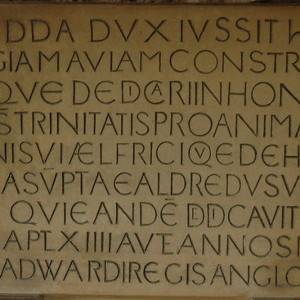
 ATIN HAS A REPUTATION as a mark of a highly learned student. The language can seem like a bit of a barrier, even though much of our own language is derived from Latin. In a liturgical setting there are usually translations available, or the texts are well known, so a complete grasp of the ins and outs of the language are not essential, but what are the most valuable things to learn?
ATIN HAS A REPUTATION as a mark of a highly learned student. The language can seem like a bit of a barrier, even though much of our own language is derived from Latin. In a liturgical setting there are usually translations available, or the texts are well known, so a complete grasp of the ins and outs of the language are not essential, but what are the most valuable things to learn?
I took a copy of the text of the 2002 Missale Romanum and found the 20 most common words along with how many times each occurs.
- 7523 et – and
- 4754 in – in or sometimes on
- 2867 ad – to
- 2484 per – for
- 2224 ut – that
- 1781 qui – who
- 1627 de – of
- 1531 Dómine – Lord
- 1331 Deus – God
- 1228 pro – for
- 1211 Christum – Christ
- 1114 cum – with
- 1015 Dóminum – Lord
- 1011 communionem – Communion
- 974 vel – or
- 955 super – over
- 931 est – is
- 907 ant – abbreviation for Antiphon
- 828 N – stands in for the name of someone, eg. Pope N.
- 799 nos – us
These twenty words count for 20% of the total text! That’s one fifth of the Missal. And “n” isn’t even a word, so you only have 19 words left to learn already.
“Domine” and “Dominum” both mean “Lord” – the endings indicate different grammatical clues, but you can work your way up to those nuances later.
I bet you could guess that “Christum” means “Christ” – if you add in Christo, Christus, Christi and Christe then you have covered even more of the Missal.
I hope that gives you a start – or provides a list you can pass on to a friend who may need some encouragement.

